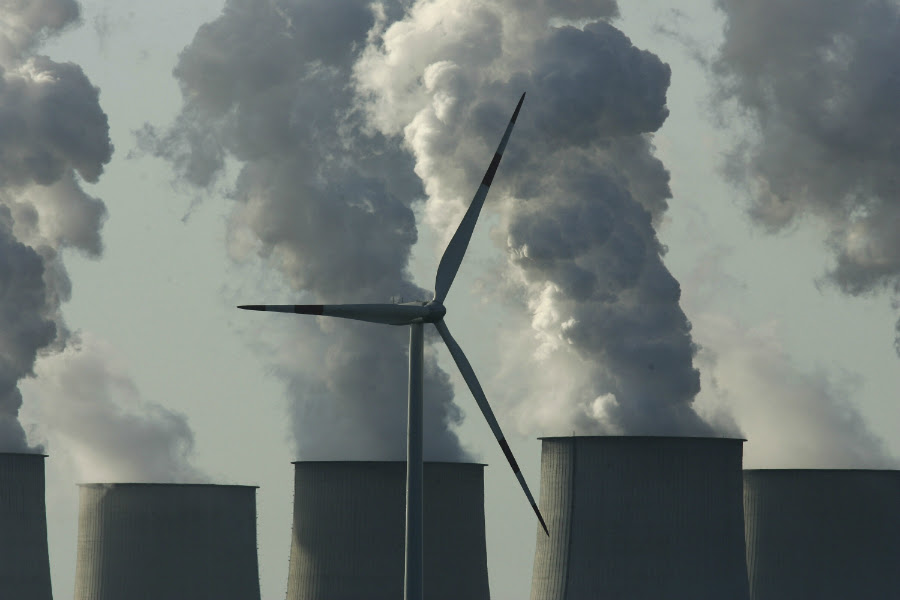
Credit: Amanda Brown
R. William Potter
The State House is all abuzz with rumors that the Legislature will try to pass a controversial bill during the brief, January lame-duck session authorizing payment of so-called zero-emission credits (ZECs) to Public Service Electric & Gas as the price for keeping its three nuclear plants, which supply 40 percent of our electricity, in operation.
PSEG argues that the influx of ultra-cheap natural gas from the fracking fields of Pennsylvania will soon render zero-emission electricity — produced by the Salem I and II and Hope Creek nuclear units — uncompetitive in the brave New World of competitively priced power, forcing PSEG to shut the plants down, causing an increase in pollution from the gas-fired units that will replace them.
At one time, natural gas was considered the cleanest-burning fossil fuel, but recent studies confirm that its “fugitive emissions” of methane gases spewed into the atmosphere are far more potent agents of global warming and climate change than even carbon dioxide from coal-burning units.
In short, PSEG’s vocal push for ZECs has solid support in economic theory — which holds that consumers should willingly pay more for fuels that in addition to generating energy also produce “positive externalities” that go by other names, including “environmental benefits” or “societal services” like cleaner air and better health.
Cleaner is costlier, but worth it
Put simply, cleaner is often costlier, but well worth the premium in health and environmental benefits.
Conversely, energy sources that pollute the environment produce “negative externalities” — such as greenhouse-gas emissions, sulfur dioxide, smog, particulates, and so forth — and for that reason they should be penalized and taxed so that they do not push cleaner sources out of the marketplace.
In effect, authorizing ZECs is a way to level the playing field so that dirtier and often cheaper fuel sources do not have a competitive advantage over cleaner but more expensively produced electricity, including nuclear along with renewable sources, solar and wind.
Recently Illinois enacted a ZEC law for the purpose of preventing the threatened shutdown of several nuclear power plants that were facing stiff competition from natural gas.
Responding to PSEG
In response to PSEG’s urgent requests, the Senate and Assembly environment committees held a rare joint hearing that ended with environmental groups shouting their opposition to the ZEC initiative, in part because the hearing ended before they could testify.
A few days earlier NJ Spotlight published an articulate denunciation of the ZEC legislation, titled “PSEG, Open Your Books!,” by noted energy attorney Stephen Goldenberg. He characterized the ZEC proposal as a “nuclear subsidy … a huge, multibillion-dollar nuclear tax imposed on all New Jersey citizens” leading to “windfall profits” for the utility.
Citing past “stranded cost claims” that nuclear units would be unprofitable in a deregulated era, Goldenberg wisely called for lawmakers not to enact the proposal — which has yet to be introduced or made public — during the lame-duck session, concluding that “the Legislature should just say no to nuclear taxes!”
Instead, they should say “maybe.”
Getting it half right
Goldenberg got it half right: Legislators should take some time to consider ZEC legislation and not rush it through in the few days of the lame duck before Gov.-elect Phil Murphy takes office. ZEC legislation should not single out nuclear power as the sole beneficiary. We need a comprehensive ZEC policy that ranks all power sources — including solar and other renewables — on an “externality scale.” The cleaner the energy source, the greater the “positive externalities” and the higher the ZEC premium to be paid for it.
But how do we do that, put a price tag on the “societal benefits” and “societal harms” of diverse energy sources?
In 1990 Pace University and the New York State Energy Research and Development Authority (NYSERDA) published a massive study, “Environmental Cost of Electricity,” directed by former Congressman Richard Ottinger, an early leader in the environmental movement, that provides some answers.
The Pace/NYSERDA tome attempts to “quantify environmental externality costs and include them in utility rate-making and resource selection” through a process wonkily called “monetization” of impacts. In short, we need a comprehensive ZEC system that reflects and incorporates the total costs of differing power sources in the rates charged for them by the state’s utilities.
This should be a priority for the incoming Murphy administration.
R. William Potter is a partner in the Princeton-based law firm Potter and Dickson. The views expressed are his own and do not necessarily reflect the views of the firm or any client.
Like this? Use form in upper right to receive free updates
See popular posts from the last 30 days in right column — >>









